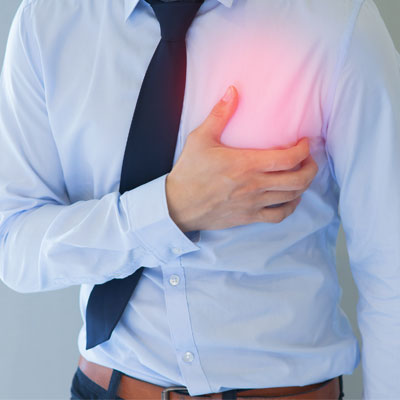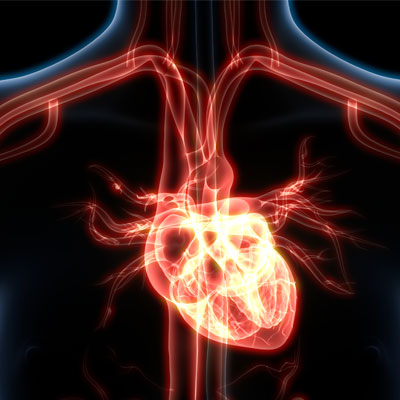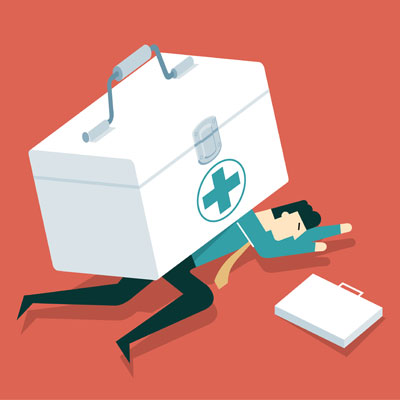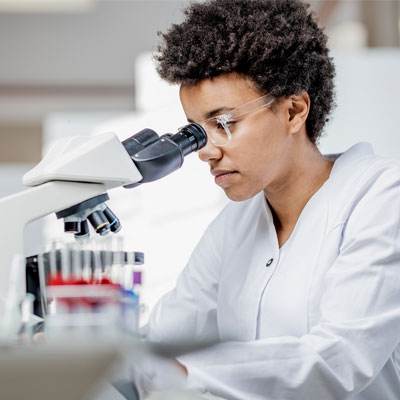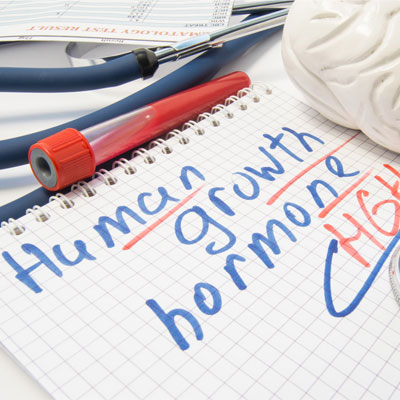Contents
Unlike some other organs that the body could do without if it had to, the heart is what keeps us alive. It is the heart that pumps the crucial oxygen-rich blood to all parts of the body and brain. Without properly oxygenated blood, the body will break down. If the blood flow that carries oxygen to the heart is reduced or blocked, a heart attack could occur. Another name for the heart muscle is the Trusted sourceMyocardium: Definition & FunctionStydy.comGo to sourcemyocardium .
The medical terminology for a heart attack may confuse some people, as numerous issues could occur:
- Acute Coronary Syndrome (ACS): a sudden blockage of the blood going to the heart muscle
- Coronary Occlusion: the coronary artery becomes obstructed and reduces blood flow to part of the heart
- Coronary Thrombosis: a blood clot forms in an artery that supplies the heart muscle with blood
- Myocardial Infarction (MI): when an area of the myocardium becomes damaged or dies due to a blocked blood supply
- NSTEMI (non-ST-elevated myocardial infarction): a partially blocked artery that severely reduces the flow of blood to the heart
- STEMI (ST-elevated myocardial infarction): a completely blocked coronary artery causing a heart attack
In addition to the types of heart attacks listed above, a coronary artery can also go into spasm or contract. If that occurs, it causes the artery to narrow and decrease blood flow to the heart.
One other concern is the spontaneous tearing of a coronary artery wall – called coronary artery dissection. It is a rare condition but could occur and cause a heart attack.
Do not confuse a heart attack with cardiac arrest. Heart attacks occur due to blood flow blockage. The problem is in the circulation of blood reaching the myocardium. Cardiac arrest is a heart malfunction that causes the heart to cease beating. Irregular heart rhythms are called arrhythmias and could result in the heart stopping suddenly. Ventricular fibrillation is the most common form of arrhythmia that can cause the lower chambers of the heart to beat chaotically and stop the pumping of blood. Within minutes after the heart stops, a death will occur. Defibrillators and cardiopulmonary resuscitation (CPR) can help restart the heart.
Symptoms of a Heart Attack
Unfortunately, many people never have any symptoms leading up to a heart attack. It is extremely common for a person to get a clean bill of health one day and have a sudden heart attack the next.
However, there are some ways you can find out if the risk of a heart attack is high. Atherosclerosis, which is a narrowing of the arteries due to plaque buildup is diagnosable. High cholesterol levels increase the risk of atherosclerosis. Your doctor can check for that if you have elevated LDL cholesterol levels.
Chest pain is not the leading symptom of a heart attack. It is often caused by angina brought on by emotional stress or exercise. If the pain in the chest lasts more than a few minutes, goes away and comes back, or feels like squeezing, uncomfortable pressure, or fullness, then it may be the signs of a heart attack.
Symptoms of a heart attack also differ from men to women, and may include:
- Shortness of breath
- Pain in the stomach, neck, back, jaw, shoulder, one or both arms
- Nausea
- Lightheadedness
- Cold sweat
- Vomiting
Women are more likely than men to experience nausea, vomiting, shortness of breath, and jaw or back pain during a heart attack. Males are more likely to experience chest pressure than females.
Causes of a Heart Attack
Although heart attacks are caused by blockages of the oxygenated blood to the heart, it is important to look at why that occurs. High cholesterol leads to the build-up of plaque in the arteries.
Spasm of a coronary artery can be due to the use of tobacco, cocaine, and other illicit drugs.
Weight gain puts more of a stress on the heart, which must beat harder to propel the body.
For women, gestational diabetes and preeclampsia can increase the risks.
Inflammatory and autoimmune disease can also increase heart attack risks.
Recovering from a Heart Attack with HGH
It is important to improve blood flow to the heart to help it heal following a heart attack. The damaged area may suffer from scar tissue that inhibits contracting and pumping of the blood. The healing time after a heart attack is about eight weeks.
One primary concern after a heart attack is coronary artery disease. CAD is due to a build-up of plaque that narrows and constricts the arteries. High cholesterol is a concern, as previously mentioned. However, so are high blood pressure, smoking, diabetes, and aging.
Your doctor will likely tell you that a healthy lifestyle (aka good nutrition and exercise) is crucial to reducing the effects of CAD. Losing weight, getting plenty of physical activity, reducing alcohol consumption, and giving up smoking are tantamount to success.
Hormone therapy, such as HGH injections, can help with weight loss, lowering cholesterol, and improving cardiac output for better exercise capability.
According to an article in The Journal of Clinical Endocrinology & Metabolism, impairment in the growth hormone/insulin growth factor 1 axis can lead to a higher risk of cardiovascular incidents. The GH/IGF-1 axis provides a physiological role in controlling and regulating various metabolic, cardiovascular risk factors. The good news here is that there are benefits of using HGH after heart attack to reduce mortality risks.
The top causes of vascular death include:
- Cerebrovascular disease
- Ischemic heart disease with congestive cardiac failure
- Myocardial infarction
Studies out of Sweden and the United Kingdom have looked at the connection between growth hormone deficiency (GHD) and cardiovascular disease. A review of HGH and heart attack studies has suggested that human growth hormone therapy may provide protection against fatal myocardial infarctions in GHD adults.
At the University of Naples in Italy, a small study showed that the benefits of HGH therapy extended to increasing peak oxygen consumption. Another positive response to human growth hormone treatment includes a 10 percent increase in left ventricular ejection fraction. Significant reductions were also demonstrated in left ventricular end diastolic and systolic volumes indexes.
Can HGH Cause a Heart Attack?
Human growth hormone functions extend to every area of the body. HGH levels dictate how much IGF-1 the liver will produce. Together, IGF-1 and HGH stimulate cell regeneration, maintain ideal cholesterol levels, regulate glucose uptake, and prevent against insulin resistance. HGH also supports metabolism, immunity, and brain functions. It has protective benefits for heart health.
Can HGH cause heart attack if you have too little in your body, as in the case of GHD?
While not a direct cause, growth hormone deficiency can contribute to factors that increase the risk of a heart attack. Low levels of HGH and IGF-1 can decrease nitric oxide (NO) release which leads to increased oxidative stress. Insulin growth factor 1 directly increases the synthesis of nitric oxide.
Adults with GHD often have increase deposits of atheromatous plaques in their femoral and carotid arteries. These plaques, along with reduced aortic distensibility, increased intima-media thickness, and stiffness in the carotid arteries are predictors of acute myocardial infarction or heart attack.
The use of HGH after heart attack can help improve the factors that lead to the cardiovascular event in the first place. Adults with GHD often have elevated blood plasma levels of homocysteine, a risk factor for atherosclerosis, endothelial dysfunction, the beginning of atherothrombotic vascular disease, and oxidative stress. Following HGH therapy, homocysteine levels experienced a reduction of nearly 8 percent in one study.
What Can Taking HGH After a Heart Attack Do?
This connection between lower levels of HGH and heart attack risks cannot and should not be overlooked or minimized. Cardiovascular disease is a primary cause of death for men and women alike. Maintaining proper heart health is essential, and that often means ensuring that your hormone levels are in balance.
Benefits of taking doctor-prescribed HGH after heart attack include:
- Increasing the following:
- exercise capacity so that you can work out longer and with higher intensity to help strengthen the heart
- left ventricular mass
- left ventricular posterior wall thickness
- cardiac output and performance
- myocyte hypertrophy – which can improve scar tissue
- nitric oxide synthesis
- Reducing the following:
- vascular resistance
- pulmonary capillary wedge pressure at rest and after exercise
- abdominal fat which puts a strain on the heart and internal organs
- LDL cholesterol which contributes to atherosclerosis and arterial blockage
- triglyceride levels
- C-reactive protein markers for inflammation
- fibrinogen concentrations
HGH following a heart attack also helps to improve the overall clinical symptoms associated with heart failure and cardiovascular disease.
The use of HGH is even more important in the overall prevention of cardiovascular disease. Maintaining balanced hormone levels can reduce the risk of the factors that contribute to heart attacks in the first place.
For further information about HGH and heart health, please contact our hormone clinic. Consultations are free and confidential to men and women throughout the US.
- Dr. Bernard L. Silverman, MD, Jason R. Friedlander, MD
- Serafino Fazio, Brunella Capaldo, MD, Arturo Giordano, MD, PhD, Francesco Pardo, Bernadette Biondi, associate Professor, Luigi Sacca, MD, Dr Raffaella Guida, Carlo Vigorito, D Sabatini
- Gudmundur Johannsson, MD, PhD, Bengt-Ake Bengtsson, MD, PhD, Jörgen Isgaard, MD, PhD, Bert Andersson, Prof, MD, PhD, F.E.S.C.
- Deborah E. Meyers, MD, FRACP, Ross C. Cuneo, MBBS, FRACP, PhD
- Monica Gola, Stefania Bonadonna, Mauro Doga, Andrea Giustina
- Catherine Demers, MD, MSc, Robert S. McKelvie, MD, PhD
Study: Is growth hormone good for the heart
A Preliminary Study of Growth Hormone in the Treatment of Dilated Cardiomyopathy
Long-term cardiovascular effects of growth hormone treatment in GH-deficient adults. Preliminary data in a small group of patients
Controversies Regarding the Effects of Growth Hormone on the Heart
Growth Hormone and Cardiovascular Risk Factors
Growth Hormone Therapy in Heart Failure: Where Are We Now?

